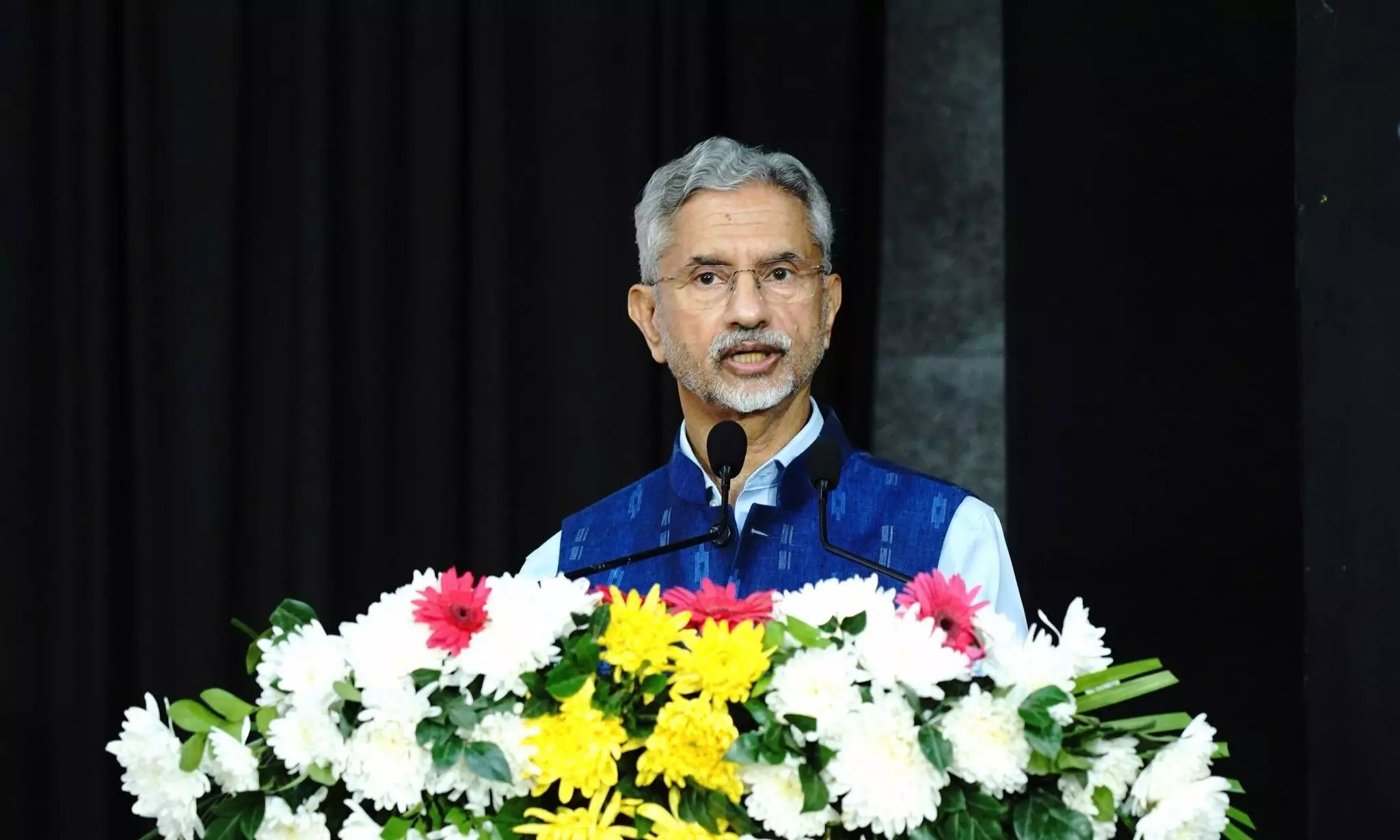
Jaishankar said that "strategic consequences" of profound changes were being witnessed in the geopolitical landscape. Photo: @DrSJaishankar
Tariff volatility upending global trade, says Jaishankar
External Affairs Minister S Jaishankar warns that tariff volatility and geopolitical shifts are reshaping global trade and supply chains

Tariff volatility is overturning trade calculations globally, External Affairs Minister S Jaishankar has said in an implied reference to US President Donald Trump’s decision to impose tariffs on the trading partners of his country.
‘Strategic consequences’
Addressing an event on Monday (October 7), Jaishankar said that "strategic consequences" of profound changes were being witnessed in the geopolitical landscape, including the shifting of one-third of global manufacturing to a single geography, in an apparent reference to China.
"Consider the global landscape now and let us reflect on the intensity of the transformation and its implications. A third of global manufacturing has moved to a single geography, with attendant consequences for supply chains," he said.
"There is rising anti-globalisation sentiment in many societies. Trade calculations are being overturned by tariff volatility," added Jaishankar.
His comments come at a time when the India-US trade relations have become strained with Trump’s decision to impose 50 per cent tariffs on India, including a 25 per cent penalty for New Delhi’s purchase of Russian oil, which Washington claimed was funding Moscow’s war in Ukraine.
Also Read: Jaishankar at UNGA: India brought Pahalgam terror perpetrators to justice
Changes in global energy scenario
Speaking at the first Aravali Summit hosted by Jawaharlal Nehru University's School of International Studies on the occasion of its 70th anniversary, Jaishankar said that the global energy scenario has changed profoundly with the US becoming a major fossil fuel exporter and China a key renewable one.
“There are competing models on the harnessing of data and evolution of Artificial Intelligence which jostle with each other,” he added.
Big Tech has become a significant player in itself. New routes of connectivity are emerging, some of them with a strategic purpose. The mobility debate seeks to reconcile skills, demand and social reactions to them, he added.
The external affairs minister also listed the application of sanctions, the "seizure" of assets and the advent of crypto as elements changing the face of global finance.
Also Read: Jaishankar urges Global South to unite for fair trade amid Trump's tariffs
Competition for rare earths
"Competition for rare earths and critical minerals has become visceral, even as technology controls have further tightened," he said.
"The quality of weaponry and the nature of war itself have been transformed, making it more stand-off, more impactful and definitely more risk-prone," he added.
Jaishanlar expressed concern over "erosion in sovereignty" facilitated by what he called "tech penetration and manipulation".
"Global rules and regimes are being revisited and at times, even discarded. Cost is no longer the defining criterion for economic transactions; ownership and security are equally so," he said.
"End-to-end" risks are rising, beginning with the concentration of production, moving through limited supply chains and then to dependence on key markets. A belief in balance of power is being replaced with actions based on margins of power,” added Jaishankar.
The Union Minister argued that cumulatively, the world is witnessing more competition and less compacts. “The needle has shifted towards an intersection of interests and away from the promise of cooperation," he observed.
"It is driven by the weaponisation of everything, with less inhibition to use available tools. Now all nations face these predicaments," said Jaishankar.
Also Read: Why Trump's tough stance on trade and visas puts Modi govt in a bind
‘India has to strategise’
Jaishankar said while the majority of the countries are struggling to cope or are busy defending their interests, India has to strategise and continue rising amidst such volatility.
"The challenge for analysts and practitioners alike is to accurately read this complex and evolving landscape. Only then can we figure out how best India can calculate and respond," he said.
"This is by no means a defensive stance. We have to safeguard our interests and yet, continuously advance up the global hierarchy. We have to de-risk our exposures and engagements and yet, take risks when necessary," he added.
(With agency inputs)

